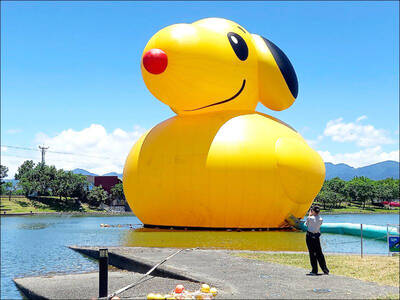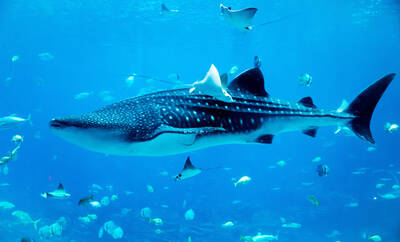Chinese Practice
欲速則不達
(yu4 su4 ze2 bu4 da2)

Photo: Wikimedia Commons
照片:維基共享資源
Things that are rushed are never accomplished
本週所介紹的成語,其背後的原則可見諸歷史上多種文化,以不同形式表達出來。《論語》〈子路〉中記載,子夏為魯國莒父邑的邑長,向孔子請教為政之道。孔子回答說:「欲速則不達,見小利則大事不成。」(操之過急,反而不能達到目的;只貪圖小利,就做不成大事。)
「欲速則不達」一語之後在西元一一一年成書的《漢書》第七十五卷再度出現,「治國故不可以戚戚,欲速則不達」(因此治理國家不可倉促為之,因為操之過急,反而不能達到目的。)
對此,羅馬帝國第一位皇帝奧古斯都顯然也是所見略同。羅馬帝國歷史學家蘇埃托尼烏斯在其所著《羅馬十二帝王傳》中記載,奧古斯都很討厭他的指揮官們草率行事,便常說:「做得好的事已經是做得夠快了」,以及「慢慢地趕快」這樣的反語,此語後來被譯成拉丁文「festina lente」,變成古代常見的一句格言。
在英文中我們常說「more haste, less speed」(越急就越慢):如果你趕著做某件事,最後反而會花更多時間來完成它。這句話的確切出處不詳,但可參考猶太經文作者便‧西拉在《便西拉智訓》(約作於西元前二○○至一七五年)所寫的:「有一個人永不停息地工作著,像個奴隸似的,可是他總是越來越趕不上。」
時間來到一六七八年的英國,約翰‧雷出版了《英文諺語集》,其中包括一個可上溯之前一百年的諺語「Haste makes waste, and waste makes want, and want makes strife between the goodman and his wife」(忙亂而為者往往造成浪費,浪費造成貧窮,貧窮造成好人與其妻之不和)。此處之「want」(要)意為「lack」(缺少)或「poverty」(貧窮);在現今我們會說成「haste makes waste」(忙亂而為者往往造成浪費)。
最後,在台灣閩南語中也有意義類似的說法「呷緊弄破碗」,意為若吃飯吃太快,反而會打破碗。
(台北時報編譯林俐凱譯)
騎車別貪快,欲速則不達,出了意外再後悔就來不及了。
(You shouldn’t bomb along the road. More haste, less speed. You’ll have an accident, and then you’ll not get there on time, anyway.)
英文練習
more haste, less speed;
haste makes waste
The principle behind this week’s idiom has been expressed in many forms, across many cultures and throughout history.
According to the Zi Lu chapter of the Confucian Analects, Zi Xia, the governor of Ju Fu, asked Confucius about good government. Confucius replied, "Desire to have things done quickly prevents them from being done (欲速則不達). Looking at small advantages prevents great affairs from being accomplished.”
The idea of desiring speed preventing one from achieving one’s objectives was repeated in the ancient Chinese Book of Han, completed in 111AD, where the same phrase — 欲速則不達 — appears in Chapter 75: “Therefore, to govern the state, you must not be too rushed, for desire to have things done quickly prevents them from being done.”
Apparently, this was a sentiment shared by the first Roman emperor, Augustus. The Roman historian Suetonius, in his De vita Caesarum (The Twelve Caesars), writes that Augustus hated rashness in his commanders, and was fond of saying things like "That which has been done well has been done quickly enough” and the rather ironic “hasten slowly,” later translated into Latin as festina lente, which was itself to become a common adage in the ancient world.
In English, we often say “more haste, less speed”: if you rush a job it will take you longer to complete it in the end. And, while the exact origins of that particular formulation are unclear, the Jewish scribe Ben Sira of Jerusalem, in his Wisdom of Sirach from approximately 200 to 175BC, wrote, “There is one [type of person] that toileth [works hard] and laboureth [labors], and maketh haste, and is so much the more behind.”
Back in Britain, in 1678, one John Ray published A Collection of English Proverbs, including a proverb dating from a century before: "Haste makes waste, and waste makes want, and want makes strife between the goodman and his wife.” Here, “want” means “lack” or “poverty.” We still say “haste makes waste” today.
Finally, there is the Hoklo (Taiwanese) dialect phrase 「呷緊弄破碗」: “if you eat too fast, you’ll break your bowl.”
(Paul Cooper, Taipei Times)
Don’t rush: you’ll make a mistake and have to do it over. More haste, less speed.
(別急,不然你會出錯,到時還得重來一次,這叫欲速則不達。)

A: The news says comic superstar Snoopy’s birthday is coming soon on Aug. 10. B: So he’s a Leo, and his birthday will fall on this Sunday. A: Cartoonist Charles Schulz created the comic strip Peanuts, featuring Snoopy, in 1950. And this year marks the character’s 75th anniversary. B: No wonder there are some big celebrations in Japan, Hong Kong and elsewhere. How about Taiwan? A: The “How Do You Do, Snoopy?” exhibition is taking place in Taipei. Let’s go to Shin Kong Mitsukoshi Department Store’s A11 branch to see the show. A: 新聞說,卡通巨星史努比的生日是8月10日耶。 B: 原來史努比是獅子座,本週日就是他的生日。 A: 漫畫家查爾斯舒茲1950年在《花生》漫畫創造了該角色,今年正好歡慶75週年! B:

A: Apart from the “How Do You Do, Snoopy?” exhibition, the Penghu International Fireworks Festival displayed some Snoopy-themed balloon installation art. B: The Yilan International Children’s Folklore & Folkgame Festival also displayed a giant rubber “Snoopy Duck.” A: And Starbucks, Kura Sushi and 7-Eleven are all selling Snoopy-themed products. B: Starlux Airlines even launched new Snoopy-themed flights recently. Isn’t that cool? A: Taiwanese love Snoopy so much. Happy 75th birthday, Snoopy. A: 除了《How Do You Do, Snoopy?花生漫畫75週年特展》,澎湖海上花火節展出了史努比氣球裝置藝術。 B: 而宜蘭國際童玩藝術節,則展出了巨型「史努比鴨」。 A: 星巴克、藏壽司、7-Eleven也推出了史努比聯名商品。 B: 星宇航空今年更推出全新「Snoopy主題航班」,很酷吧? A: 台灣人好愛史努比啊,75歲生日快樂!

Whale sharks are the largest species of fish in the world. They aren’t related to whales, but take their name due to their enormous size. At full maturity, whale sharks measure around nine or 10 meters long and can weigh from 15,000 to 40,000 kilograms. Whale sharks live in warm waters, with about 75% of them found in the Indo-Pacific region. They can migrate thousands of kilometers to different feeding grounds, but at a slow speed of 5 km/h on average. Whale sharks have a broad, flat head and are typically brown or gray in color. Their distinguishing characteristic

Continued from yesterday(延續自昨日) https://www.taipeitimes.com/News/lang Whale shark reproduction has long been a mystery for scientists. However, a significant discovery in 1995 off the eastern coast of Taiwan provided valuable insights. Researchers examined a pregnant female of the species and found over 300 embryos inside her body, ranging from about 40 to 60 cm in length. This discovery revealed that whale sharks are ovoviviparous. Instead of laying eggs in the ocean, the mother carries them internally until they hatch, giving birth to fully developed live young. Since the eggs don’t hatch all at once, embryos at different stages of development can all exist within